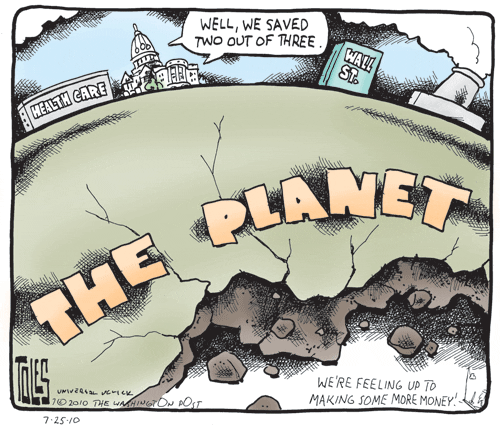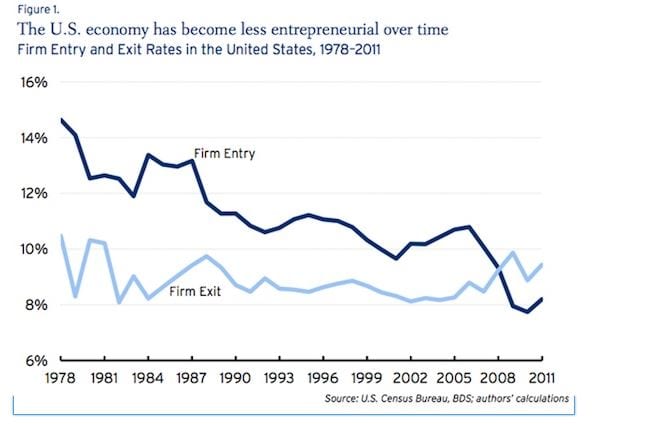
Superpower Ideas: The United States Approaches Its Decline
Updated Oct 2023
The notion of the United States nearing its end as a superpower is thought-provoking and concerning. As a global superpower for much of the 20th century and beyond, its potential decline raises significant questions and discussions about the future of geopolitics and international affairs.
It is crucial to explore this concept with a balanced perspective, acknowledging that no superpower remains at its zenith indefinitely. History has shown that the rise and fall of empires and superpowers are cyclical, with various factors contributing to their ascent and eventual decline.
Some potential factors contributing to the idea of the United States nearing its decline as a superpower could include:
Economic Challenges:
Economic challenges play a crucial role in shaping a nation’s superpower status. Several factors have posed significant financial challenges for established superpowers in recent years. One of these challenges is the rising national debt. High public debt levels can strain a country’s economy, hinder long-term growth prospects, and potentially erode its superpower status. It becomes essential for nations to address fiscal imbalances and implement sustainable economic policies to maintain their financial strength.
Another economic challenge is trade imbalances. Global trade dynamics have shifted, leading to imbalances that can impact a superpower’s position. Persistent trade deficits or surpluses can affect a country’s competitiveness, industrial base, and overall economic stability. To remain economically influential, superpowers must adapt to changing trade patterns, foster innovation and productivity, and ensure fair and balanced trade relationships.
Moreover, changing global economic dynamics pose challenges to superpowers. The rise of emerging economies, such as China and India, has shifted the global economic landscape. These economies have experienced rapid growth, technological advancements, and increasing influence in international affairs. Established superpowers must navigate this shifting economic landscape and find ways to adapt, compete, and collaborate with emerging powers to maintain their global financial standing.
Geopolitical Realignment:
Geopolitical realignment is a significant factor that can shape the superpower status of nations. The emergence of new global players and the formation of new alliances can potentially challenge the dominance of established superpowers. In recent years, we have witnessed the rise of regional powers and the formation of strategic partnerships that seek to realign global power dynamics.
For example, China’s increasing economic and military influence has reshaped the geopolitical landscape. Through initiatives like the Belt and Road Initiative, China has expanded its reach and built alliances with various countries, challenging the influence of traditional superpowers. Similarly, regional partnerships like the Association of Southeast Asian Nations (ASEAN) and the African Union have gained prominence, creating new centres of power and influence.
Established superpowers must engage in strategic diplomacy, build alliances, and adapt their foreign policies to the evolving dynamics to navigate geopolitical realignment. It becomes crucial to balance competition and cooperation, recognizing the potential for collaboration with emerging powers while safeguarding national interests.
Domestic Issues:
Domestic issues can significantly impact a nation’s ability to maintain its superpower status. Political polarization, social unrest, and institutional weaknesses can undermine stability and hinder effective domestic and international governance.
Political polarization poses a challenge to superpowers as it can lead to gridlock, policy stagnation, and a lack of consensus on critical issues. When political parties prioritize partisan interests over national unity, it becomes difficult to implement long-term strategies and adapt to global changes. Superpowers must strive for political cohesion, foster inclusive governance, and promote constructive dialogue to address domestic challenges effectively.
Social unrest is another factor that can weaken a nation’s superpower status. Protests, demonstrations, and social divisions can divert attention and resources from crucial international engagements. Ensuring social cohesion, addressing socioeconomic disparities, and promoting inclusivity are vital for maintaining stability and projecting a unified front on the global stage.
Institutional weaknesses, such as corruption, inefficiency, and lack of transparency, can undermine a superpower’s credibility and governance capabilities. Strengthening institutions, promoting the rule of law, and ensuring accountability are essential for fostering domestic and international trust.
Superpowers must address these domestic challenges to demonstrate stability, unity, and effective governance, which are crucial to maintaining their superpower status.
Technological Advancements:
Technological advancements have the potential to either bolster a nation’s superpower status or erode it if not properly harnessed. The rapid pace of technological innovation can disrupt industries, reshape economies, and redefine power dynamics on the global stage.
Superpowers must invest in research and development, promote innovation ecosystems, and leverage emerging technologies to maintain their competitive edge. Advancements in artificial intelligence, quantum computing, biotechnology, and renewable energy can drive economic growth, enhance military capabilities, and shape the future of various industries.
However, technological advancements also bring challenges. Rapid automation and digitalization can lead to job displacement and exacerbate societal inequalities. Superpowers must address these challenges by investing in reskilling and upskilling programs, fostering inclusive innovation, and ensuring a smooth transition to the digital economy.
Moreover, ethical considerations surrounding emerging technologies, such as data privacy, cybersecurity, and responsible AI, are crucial for maintaining public trust and international cooperation. Superpowers must lead in setting standards and regulations to ensure the responsible and ethical deployment of emerging technologies.
Environmental Concerns:
Environmental concerns have far-reaching implications for a nation’s stability, prosperity, and superpower status. Climate change, resource scarcity, and ecological degradation pose significant challenges that require global cooperation and sustainable solutions.
Superpowers must actively address climate change by transitioning to low-carbon economies, investing in renewable energy infrastructure, and adopting sustainable practices. Mitigating the impacts of climate change, such as extreme weather events and rising sea levels, is essential for maintaining social, economic, and environmental stability.
Resource scarcity, including water and energy resources, can also impact a nation’s superpower status. Superpowers must invest in sustainable resource management, promote innovation in resource efficiency, and work towards global cooperation in ensuring equitable access to resources.
Environmental degradation, such as deforestation, pollution, and biodiversity loss, can have long-term consequences for a nation’s ecosystem services and overall well-being. Superpowers should prioritize environmental conservation, implement stringent environmental regulations, and promote sustainable development practices.
Addressing environmental concerns requires international collaboration and the establishment of global frameworks, such as the Paris Agreement, to mitigate climate change and promote sustainable development. Superpowers must lead by example, commit to ambitious environmental targets, and cooperate to ensure a sustainable future for all.
Global Cooperation:
The degree to which a nation engages in global cooperation and diplomacy can significantly impact its standing as a superpower. Collaboration with other countries on various issues, including trade, security, climate change, and global health, is essential for addressing common challenges and advancing shared interests.
Superpowers must actively participate in international organizations, such as the United Nations, World Trade Organization, and regional alliances, to shape global norms, influence decision-making processes, and foster cooperation. Constructive engagement and diplomacy are crucial in resolving conflicts, promoting peace, and maintaining stability.
Supporting multilateralism and upholding international agreements is vital for superpowers to demonstrate their commitment to global governance and cooperation. By actively participating in global initiatives, superpowers can strengthen their diplomatic relationships, build trust, and project a positive image on the international stage.
Additionally, superpowers should prioritize development assistance and humanitarian aid to support needy nations. By providing services in areas such as education, healthcare, infrastructure, and poverty alleviation, superpowers can contribute to global stability and enhance their soft power.
While pursuing national interests, superpowers should also recognize the importance of collective action and seek win-win solutions to global challenges. By working collaboratively with other nations, superpowers can achieve more significant influence, promote global stability, and uphold their superpower status in an interconnected world.
It’s essential to approach discussions about the potential decline of a superpower like the United States with careful analysis and consideration of historical precedents. While no one can predict the future with certainty, examining these factors can help us better understand the complex dynamics of global superpowers’ evolving landscape.
Superpower Ideas: Harnessing Emerging Tech for Success
Superpowers have various emerging technologies at their disposal that they can leverage to maintain their competitive edge. Some examples include:
1. Artificial Intelligence (AI) and Machine Learning (ML):** AI and ML technologies can revolutionize industries and enhance decision-making processes. Superpowers can harness AI and ML for advanced analytics, autonomous systems, natural language processing, and predictive modelling applications. These technologies enable improved efficiency, innovation, and strategic decision-making.
2. Quantum Computing: Quantum computing has the potential to solve complex problems at an unprecedented speed and scale. Superpowers can leverage this technology to advance cryptography, optimization, drug discovery, and material science. Quantum computing can provide a significant advantage in areas where traditional approaches fall short.
3. Genomics and Precision Medicine: Genomics and precision medicine advances allow for personalized healthcare and targeted treatments. Superpowers can invest in genomics research, data analysis, and clinical applications to improve healthcare outcomes, develop innovative therapies, and address public health challenges.
4. Renewable Energy and Energy Storage: Superpowers can lead the transition to renewable energy sources such as solar, wind, and geothermal power. Investing in renewable energy infrastructure and energy storage technologies can reduce dependence on fossil fuels, promote sustainability, and drive economic growth by developing clean energy industries.
5. Internet of Things (IoT): The IoT connects devices and enables data exchange, enhancing automation, optimization, and connectivity. Superpowers can leverage IoT technologies for smart cities, industrial automation, supply chain management, and precision agriculture. IoT applications can improve efficiency, resource management, and quality of life.
6. Blockchain and Distributed Ledger Technology (DLT): Blockchain and DLT offer secure and transparent decentralized systems for transactions, record-keeping, and supply chain management. Superpowers can leverage these technologies to enhance cybersecurity, streamline financial transactions, improve transparency in governance, and create efficient decentralized networks.
7. Advanced Robotics: Superpowers can invest in advanced robotics, including humanoid robots, collaborative robots, and autonomous systems. These technologies can revolutionize manufacturing, healthcare, logistics, and defence sectors. Advanced robotics can enhance productivity, safety, and precision in various industries.
8. Biotechnology and Bioengineering: Superpowers can focus on advancements in biotechnology and bioengineering to drive innovation in healthcare, agriculture, and environmental sustainability. Developments in gene editing, synthetic biology, and bio-based materials can lead to breakthroughs in medical treatments, food production, and renewable resources.
9. Space Exploration and Satellite Technologies: Space exploration and satellite technologies offer scientific discovery, communication, and national security opportunities. Superpowers can invest in space exploration missions, satellite networks, and space-based observation systems to gain a competitive edge in space-related industries and strategic capabilities.
By strategically leveraging these emerging technologies and fostering an environment that promotes innovation, superpowers can maintain their competitive edge and drive economic growth in the changing global landscape.
Superpower Ideas: Regulatory Impact on Business Dynamism
There have been growing concerns regarding a noticeable slowdown in business dynamism and a decline in the creation of new businesses over the past few decades. This trend is not confined to a single sector but has a widespread impact, affecting various industries. The underlying reasons behind this phenomenon are intricate and remain the subject of continuous analysis and debate.
One key factor frequently emerging in discussions is the expansion of the federal regulatory landscape since the 1970s. Critics argue that the increasing regulatory burden, combined with the influence of federal courts, has stifled the creation and dynamism of businesses. They point out that the uptick in business creation was modest and short-lived even during periods when regulations were reduced, such as the era of Reaganomics and deregulation in the 1980s. Similar observations were made during the George W. Bush administration.
It is crucial to acknowledge that scrutinizing the intricate relationship between regulations and business dynamism is a multifaceted undertaking. While some contend that excessive regulations impede entrepreneurship and innovation, others maintain that principles are indispensable for consumer protection, equitable competition, and social and environmental standards. The impact of restrictions can vary substantially depending on the specific industry, the nature of the rules, and the overall economic conditions.

Regulatory Policies and Superpower Ideas: Impact on Business Creation Trends
Recent data brings to light growing concerns about the decline in business creation and its potential connection to regulatory policies. While the focus shouldn’t exclusively centre on business failures, the notable absence of new business ventures sounds alarm bells. This trend, which initially dipped during the Great Recession, has persisted through subsequent recovery periods.
During this period, we witnessed the implementation of top-down regulations such as the Affordable Care Act (ACA) and the Dodd-Frank Wall Street Reform and Consumer Protection Act. Additionally, there were short-term incentives and investments in sectors like solar energy, often called “crowd-out” investments. Critics argue that these policies, coupled with what they view as gimmicky Keynesian economics, have hindered entrepreneurship. They claim that these measures restrict access to capital and impose cumbersome regulations.
To reverse this downward trend, advocates propose the need for policies that boost entrepreneurship by prioritizing job creation and facilitating capital utilization. They underscore the critical importance of promoting the free flow of capital for entrepreneurial purposes and reducing the regulatory burden. Some argue that a shift in leadership and reevaluating the federal government’s scope are essential to creating a more favourable environment for entrepreneurship.
However, it’s essential to recognize that discussions surrounding the impact of regulations on business creation and entrepreneurship are nuanced and continuously subject to analysis. Multiple factors, including market conditions and technological advancements, can influence the dynamics of entrepreneurship. Furthermore, there are varying viewpoints on the role of regulations in ensuring consumer protection and upholding social and environmental standards.
To obtain a comprehensive understanding, it is imperative to consider the most recent research and expert opinions on this subject. Ongoing analysis and dialogue can contribute significantly to well-informed discussions about how to encourage entrepreneurship while striking a balance with regulatory considerations in the pursuit of economic growth and innovation. Full Story
The data below offers a historical view of the U.S. decline. Both Obama and Bush aimed to limit our freedoms, though in different ways. Bush implemented strict measures after 9/11 under the guise of aiding Americans. Obama introduced various policies, with the most controversial being the mandatory insurance purchase, which saw rates rise instead of drop.
Obamanomics: An Examination of Recent Data
It seems we are finally witnessing the devastating power of Obamanomics. More companies are dying or filing for bankruptcy than are being created for the first time, and yet the administration claims all is well. According to a study conducted by the Brookings Institution, things are getting worse and not better. The masses have been sold a bucket of lies; as we have stated over and over again, this recovery is nothing but a hoax fueled by hot money.
Recent data further highlights the concerning trends in the economy. Despite recovery claims, the job market remains fragile, with persistent unemployment rates in specific sectors. Wage growth is stagnant for many workers, exacerbating income inequality.
The national debt continues to soar to unprecedented levels, posing a significant long-term risk. The monetary policies implemented during the previous administration have left a legacy of financial uncertainty, with potential consequences for future generations.
In conclusion, while there may be differing opinions on the impact of Obamanomics, the latest data suggests ongoing economic challenges that demand careful consideration and policy adjustments. The path to a more stable and equitable economy remains a complex and pressing issue.
Concluding Thoughts on Superpower Ideas
In conclusion, exploring superpower ideas, particularly in the United States nearing its potential decline, reveals a complex and multifaceted landscape. The concept of superpower status is not static; it evolves, shaped by various factors ranging from economic challenges and geopolitical realignment to domestic issues, technological advancements, and environmental concerns.
Examining these elements allows us to understand the dynamics at play in the realm of superpower ideas. The United States, as a historical superpower, faces its own set of challenges and opportunities on this ever-changing stage. The subject “superpower ideas” resonates throughout this discourse, underscoring the importance of thoughtful analysis and consideration in navigating the path ahead.
As we contemplate the potential decline of a superpower like the United States, it is imperative to do so with an open mind and an awareness of historical precedents. Superpower ideas are not static; they adapt and transform in response to shifting global dynamics. By recognizing the intricate interplay of economic, geopolitical, domestic, technological, and environmental factors, we can engage in meaningful discussions and shape policies that steer the course of superpower ideas in a direction that benefits individual nations and the global community.
In essence, the concept of superpower ideas serves as a reminder that the world is in a constant state of flux, and the ability to adapt and innovate is paramount for any nation seeking to maintain its influence and relevance on the global stage. Superpower ideas are, in essence, a reflection of a nation’s ability to navigate the complexities of our interconnected world and contribute positively to the ever-evolving narrative of international affairs.
Stimulating Articles for Reflective Readers










